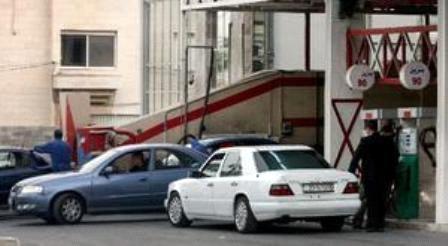Ammon News - By Albawaba Business
Demand for petroleum products dropped sharply over the past few days after prices of oil derivatives in the local market went up following a government decision to lift fuel subsidies, according to the Gas Station Owners Association (GSOA).
In the days before the decision was announced last Tuesday, demand for oil derivatives had soared to unprecedented levels, causing a disruption in the refinery's supplies to around 440 gas stations across the country.
Daily sales of four fuel products reached around 14,000 tonnes before the new prices went into effect on November 14, while on regular days the total average consumption of these products stands between 7,000 and 8,000 tonnes a day.
But demand for fuel over the past four or five days has dropped even below the daily average levels, GSOA President Fahed Al Fayez told The Jordan Times on Tuesday.
Over the past three days, the volume of fuel ordered by gas stations from the Jordan Petroleum Refinery Company, the Kingdom’s sole supplier of oil derivatives, ranged between 5,000 tonnes and 5,700 tonnes a day, Fayez added, while demand for cooking gas cylinders dropped from 175,000 units just days prior to the increase to 55,000 on Monday and Tuesday.
According to the GSOA president, average daily sales of cooking gas amount to around 80,000 cylinders.
Noting that winter usually pushes up sales of fuel products, Fayez attributed the dwindling demand to the fact that the majority of people stocked up on diesel, kerosene and gas for heating purposes before the prices went up.
“People have not started operating their heating devices yet because they believe it is still a bit warm and they can save money,” he explained.
The new prices of fuel that went into effect last week will be valid until January 1, 2013, when authorities will start reviewing oil derivative prices every month based on the cost of oil on international markets.
The decision to lift fuel subsidies, which was met by protests and riots across the country, sent up the price of 90-octane gasoline by 15 per cent, from JD0.70 a litre to JD0.80 a litre.
Diesel and kerosene prices rose from JD0.515 a litre to JD0.685 per litre, a 33 per cent increase.
Cooking gas saw the highest rise, with the price of a gas cylinder going up from JD6.5 to JD10.
Authorities say the decision to lift subsidies and sell fuel products at cost was taken to avoid further financial losses to the Treasury, as the cost of subsidies to this year’s budget was estimated at JD800 million.
The new subsidy regime, under which direct cash payments are being delivered to low- and medium-income Jordanians, is expected to bring the cost down to JD300 million a year.
Under the new system, each individual of a household that consists of six members or less and whose income is less than JD800 a month or JD10,000 a year, will receive JD70 annually in compensation for the hike in prices.
